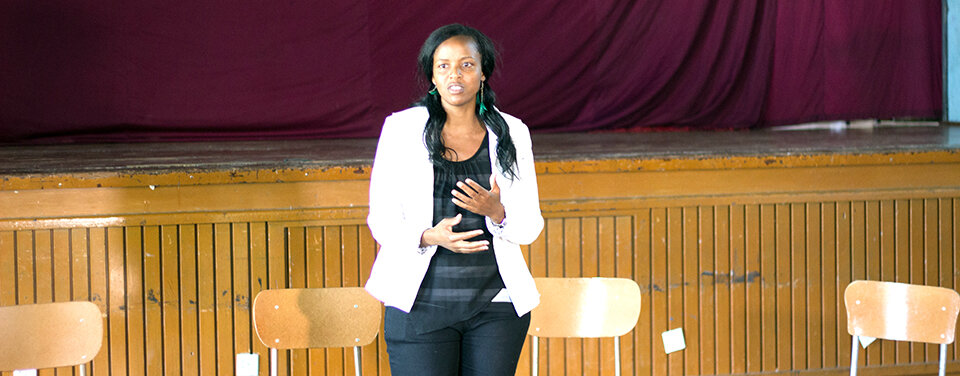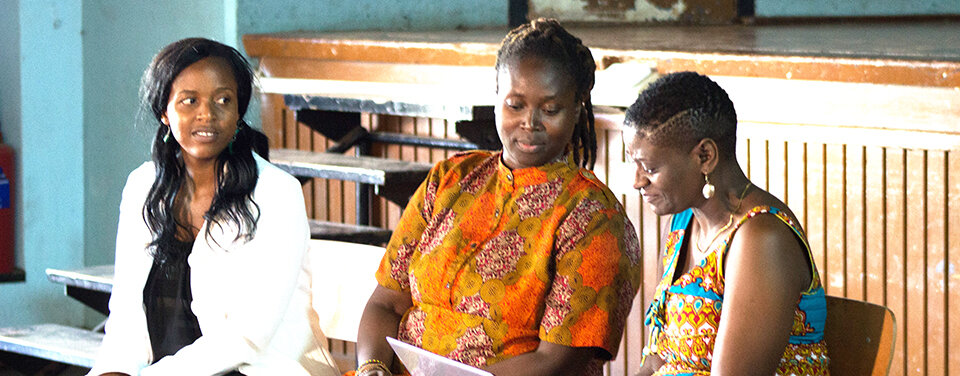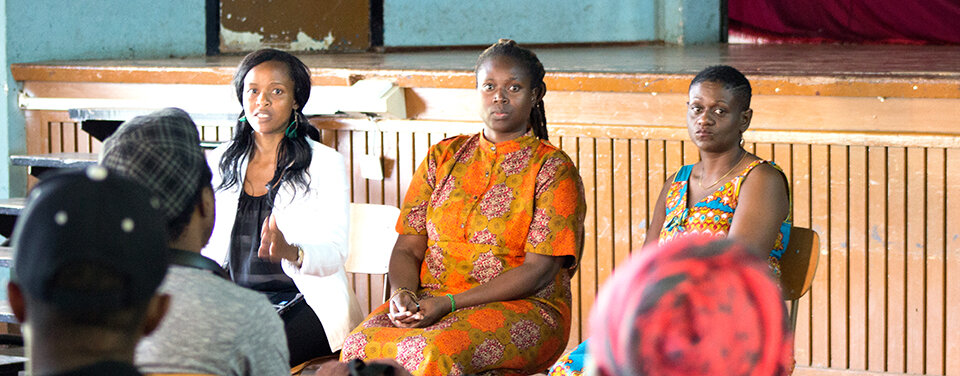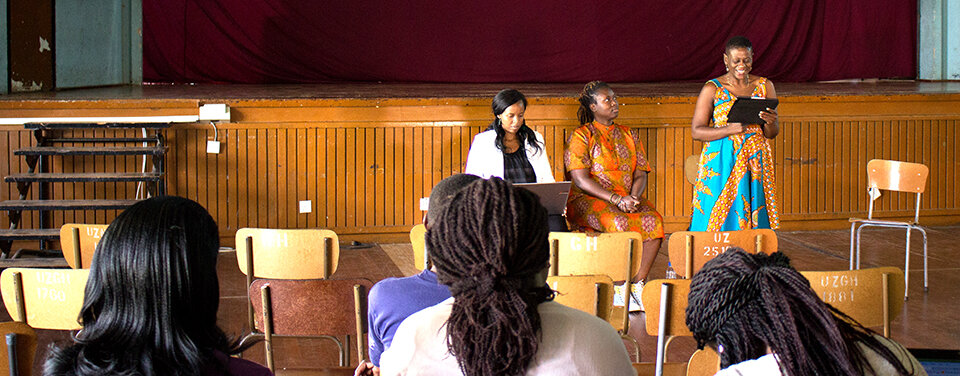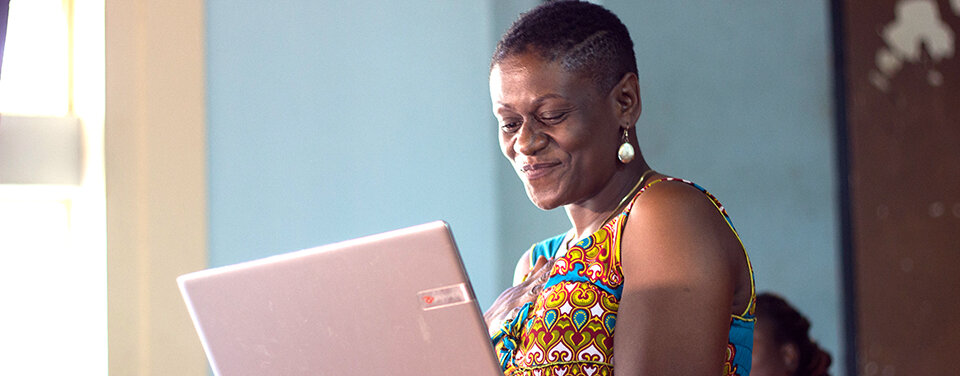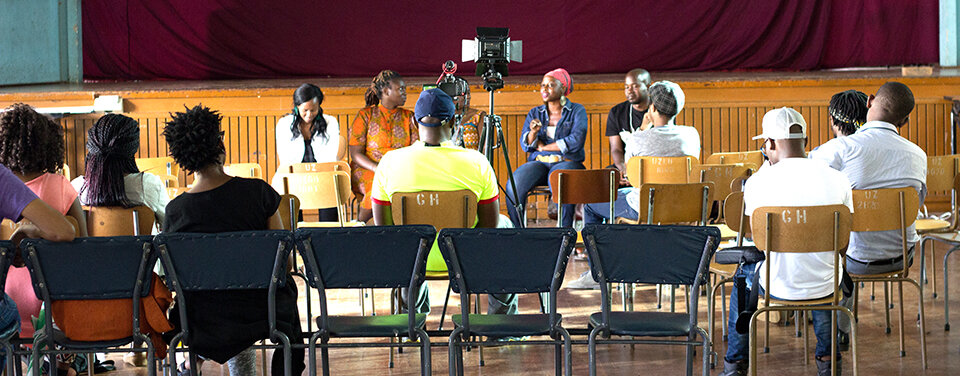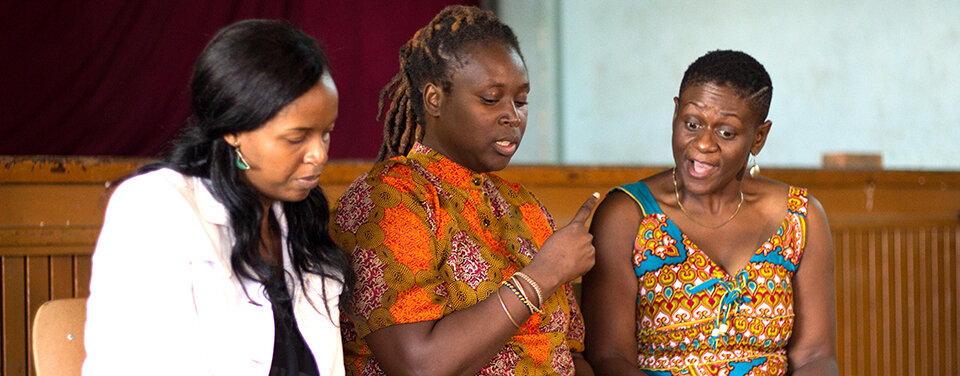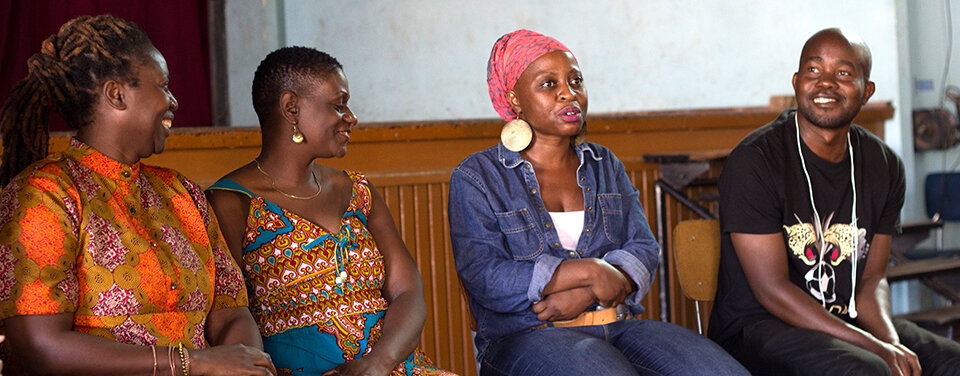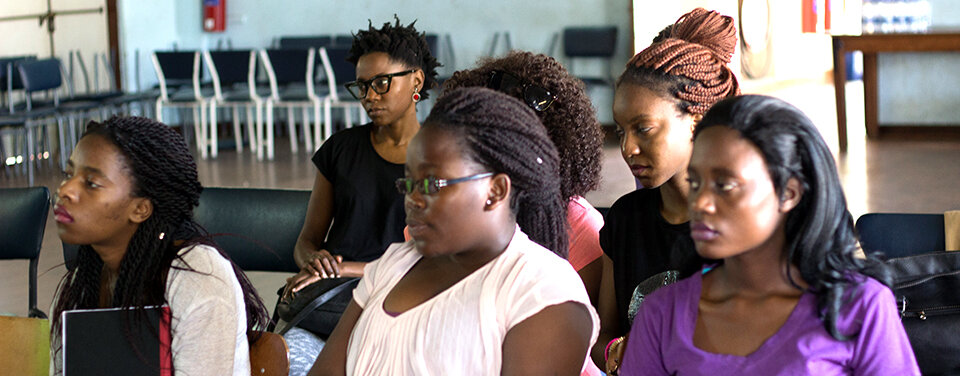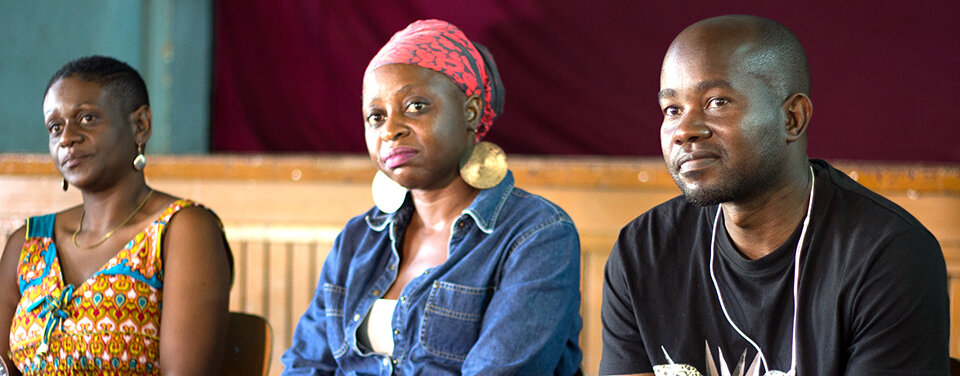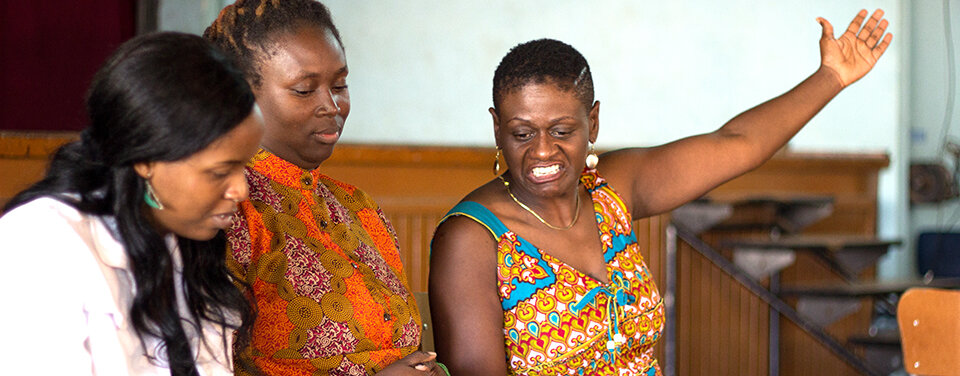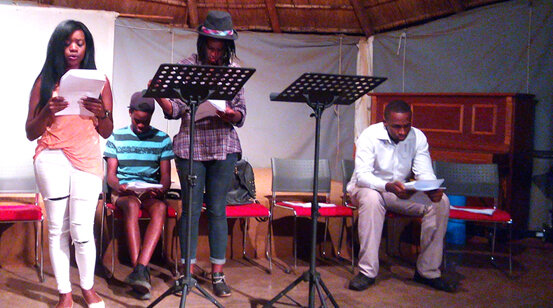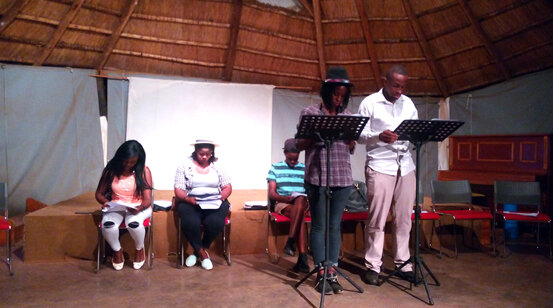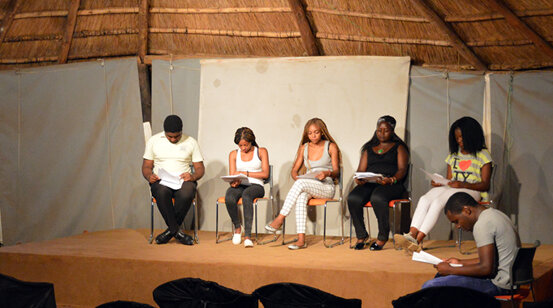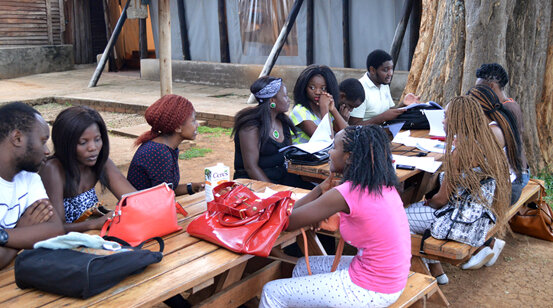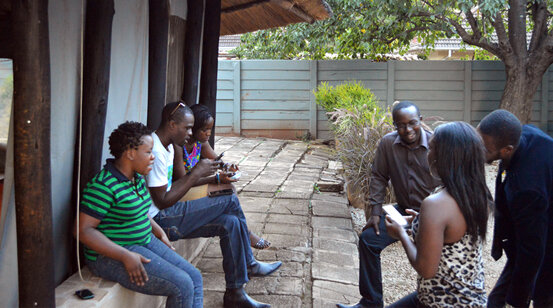WRITERS DIALOGUE
2018 WRITERS DIALOGUE
On the 7th of April 2018 at 2.00pm, Almasi presented public readings from The Writers Dialogue at University of Zimbabwe Beit Hall. Facilitated by Thandiwe Mawungwa, the Writers Dialogue public readings had the participation of UZ students and Almasi African Playwrights Conference alumni Rudo Mutangadura and Farai Mabeza. The Writers Dialogue at University of Zimbabwe is part of the Almasi Writers Dialogue series.
The Writers Dialogue Series is an Almasi platform where emerging and mid-career writers are equipped with dramatic writing skills and also enabled to get critical responses to their works in progress. The Writers Dialogue sessions culminate into free public readings of work that will have been produced during the course of a three-day workshop, continuing with the process of critical responses.
The goal of the platform is to promote the development of great Zimbabwean dramatic storytellers through skills training and mentorship, play development process and audience interaction.
The workshops are aimed at equipping participants with more dramatic writing knowledge and the tools on developing a play. Participants are encouraged to understand the human need for stories, what constitutes a story and finding their writer’s voice. The sessions cover; elements of dramatic writing, elements of story, the blueprint of a play, plot structure combined with practical writing and re-writing skills.
CAST & CREW
Playwright | Nancy Mumhazha
Playwright | Paddington Handinahama
Playwright | Rudo Mutangadura
Playwright | Farai Mabeza
Actor | Sandra Chidawnyika-Goliath
Facilitator | Thandiwe Mawungwa
Stage Manager | Prudence Kalipinde
Operations Manager | Kudakwashe Kanembirira
Associate Artistic Director | Elizabeth Zaza Muchemwa
A NOTE FROM FACILITATOR THANDIWE MAWUNGWA
What’s the Objective?
Two years ago I had the privilege of conducting a playwriting workshop with the students from Churchill Boys High School and this year I had the same privilege but this time with students from the University of Zimbabwe.
The workshop was a three-day workshop and we discussed the elements that make up a story. What I enjoyed the most was the process of using things that surround us to come up with story ideas. The students came up with some creative concepts from things like stones, empty coke cans and chewed ballpoint pens.
Despite the interesting stories the students came up with, they, however, needed help with characterization and coming up with tangible objectives for their characters. Therefore, we spent most of day two working on characterization and character objectives. The question we kept on asking was ‘what’s the objective?”. We also discussed the difference between an objective and the motivation for the objective as I could tell that the students tended to confuse the two.
I was very happy when, at the end of the day each of the participating students had a clear, tangible objective for their character. As a facilitator, one always wants to know that they have made a big improvement in the craft of the attendees – and that is exactly what I did.
Having been part of many Almasi trainings where I gained a wealth of knowledge, it was very rewarding to be able to share that knowledge with young, upcoming and enthusiastic playwrights. I look forward to facilitating more workshops in the future.
2016 WRITERS DIALOGUE
From January 2016 to March 2016 Almasi presented Zimbabwean playwrights in the process of developing their plays; a platform for them to receive feedback on their works in progress through a series of writers’ dialogues. Plays from participating playwrights were read by local actors to a small invited audience. Fashioned after the play development process from the Almasi African Playwrights Festival, the dialogue gave the playwrights meaningful feedback from the audience and the actors who took part in the staged readings. In return, the playwrights also interacted with the audience by asking them questions and talking about their writing processes. Through these dialogues, they were able to get an understanding of what worked in their plays and what needed to be worked on.
FIRST WRITER’S DIALOGUE
In January 2016, Gideon Jeph Wabvuta and Thandiwe Nyamasvisva took part in the first writers’ dialogue which was moderated by Elizabeth Zaza Muchemwa at the Zimbabwe German Society.
Gideon’s play “Family Riots” is a family drama set in 90s Zimbabwe at a time when the infamous food riots were about to take place. For Gideon, the process was helpful and gave him enough feedback to take on the task of writing another draft of the play.
Thandiwe’s play “33 cents” is about how everything is connected. She is going to use the feedback she received from the dialogue to fine tune one or two issues she had been having trouble settling in previous drafts.
SECOND WRITER’S DIALOGUE
The second writers’ dialogue Almasi presented was on the 22 February at the Zimbabwe German Society. Privilege Gwaba and Rudo Sheron Mutangadura participated, with Gideon Jeph Wabvuta moderating.
Privilege’s play’s focus is on the lengths that women go to in order to have children.
The audience found the dialogue appealing, the issues in the play relevant, and the storyline interesting. However, they found the setting to be unclear, the plot not believable and they felt that the play was saying that all women are flawed. They thought the play has a lot of potential and if she were to work more on it, it could be a powerful piece.
Rudo’s play is about the politics of food and how a family tries to figure out how they can minimize the amount of food they consume. The play’s idea came from a story she heard in a hair saloon. The audience found the form of the play interesting, the characters believable and the setting very clear. Rudo always has a writing pad on her which she uses to record things that interest her: be it a line in a book or a conversation in a Kombi or on the street. When she writes she picks up from these things. The play is still at an early development stage and she will keep working on it.
THIRD WRITER’S DIALOGUE
On the 7th of March, Almasi hosted another writers’ dialogue with Gerald Mhuri, a University of Zimbabwe student, participating and Gideon Jeph Wabvuta moderating. This session began with a very interesting discussion on African playwrights and their impact on the global market. When asked to name 10 African playwrights whose work has been staged and published, the people who were in attendance struggled to put together a complete list of 10 known African playwrights. It was therefore appreciated that it is important to keep on developing Zimbabwean voices.
Gerald Mhuri’s play “47” is about succession battles that ensue when the old leader of an ancient kingdom gets sick and falls into a coma. Gerald set out to write something that was set in the 19th century and he wanted to write a story that is based around a complicated situation. He believes that we are not entirely in control of our lives; there are other forces in control. This is what he attempts to explore in his play.
The audience found the language of the play interesting and liked that it had a distinctly African setting. They were also interested to find out how Gerald, as he develops his play further, will maintain the highs and the lows of the conflicts in the play. Gerald is going to use the feedback he received to develop the play to full length.
FOURTH WRITER’S DIALOGUE
On the 14th of March 2016, Almasi presented the fourth writers’ dialogue at the Zimbabwe German Society. The session was moderated by Gideon Jeph Wabvuta, with Lewis Mukandatsama participating.
Lewis’ play is drawn from his experiences growing up in a middle-class family.
While the audience thought that the play was good with monologues that are very grounded, they found the setting unclear and the action taking place in too many places. As he develops the play further, Lewis will have to figure out what the stakes are for all of the characters, and in the writing earn some of what takes place in the play.
The Writers Dialogue is part of Almasi’s Capacity Building of Dramatic Artists’ Project supported by The Culture Fund of Zimbabwe Trust in partnership with Sida and Danida.

